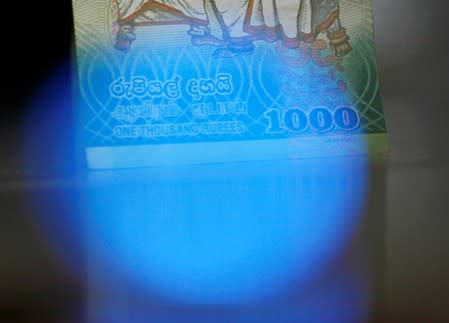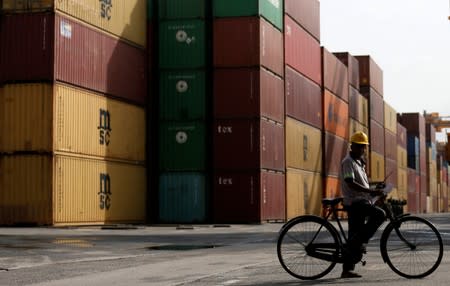Sri Lanka's economy recovered in first-quarter but faces slump after April bombings
COLOMBO (Reuters) - Sri Lanka's economy grew at its fastest pace in nearly a year from January to March, before the Easter Sunday bomb attacks on April 21 killed over 250 people, crushing the island's tourism sector.
The economy gained 3.7% in the first quarter of 2019, accelerating from a growth rate of 1.8% the previous quarter - its slowest pace since early 2014, due to a political crisis.
Despite the recovery at the start of this year Sri Lanka's economy is expected to slump to a nearly two-decade low in 2019, a Reuters poll showed, as tourism, foreign investment and business activity eased sharply in the wake of the bombings.
"There was some recovery in the first quarter with the recovery in consumer demand but we expect a big hit in the second quarter due to the bomb attacks," said Dimantha Mathew, research head at First Capital Holdings.
"We expect zero or negative growth in the second quarter and around 1.5% growth in the third quarter but we expect a recovery in the fourth quarter which will help the full year growth to be less than 2%."
Last month, central bank Governor Indrajit Coomaraswamy said he expected the economy to grow by 3% or less this year, dented by the impact of the bombings. The bank had earlier projected 4% growth.
Sri Lanka's services sector, accounting for more than half of the economy, grew at 4.1% in the first quarter of 2019, compared to 4.4% in the same period last year, data issued by the statistics department showed on Wednesday.
The industrial sector, accounting for more than a quarter of the economy, grew by 3.0%, compared to 1.7% growth the previous period while agriculture grew 5.5%, compared to an earlier 5.1%.
Growth in 2018 hit a 17-year low of 3.2 percent, from 3.4 in 2017, due to a political crisis after President Maithripala Sirisena abruptly sacked his prime minister Ranil Wickremesinghe and dissolved parliament. That was later ruled unconstitutional, and Wickremesinghe was reinstated.
The crisis created panic and uncertainty among investors, who dumped Sri Lankan government bonds and other assets, sending the rupee currency to record lows.
Security in Sri Lanka has been ramped up since the April 21 attacks by Islamic militants, who killed over 250 people including 42 foreign nationals in churches and hotels across the country. Tourism, which accounts for 5% of the country's gross domestic product, has suffered as travellers from around the globe cancelled hotel and flight bookings.
The Islamic State had claimed responsibility for the attacks.
(Reporting by Ranga Sirilal; Editing by Alexandra Hudson)


